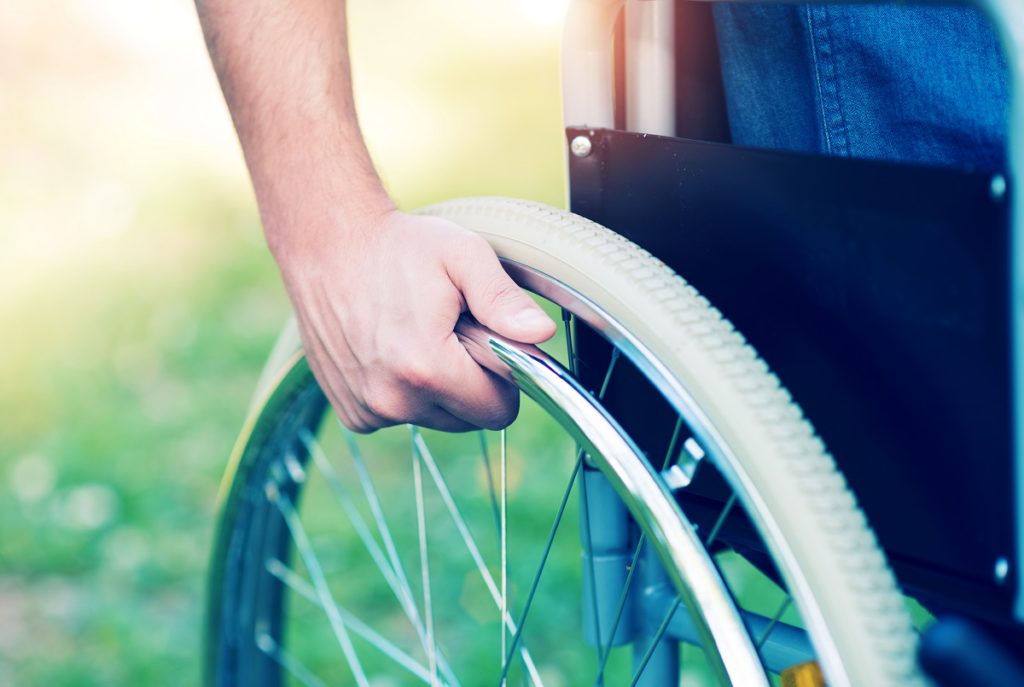As a man with a physical disability, I need a lot of help to perform many basic daily activities. I still consider myself to be an independent thinker, but my physical independence is substantially limited by my severely reduced muscle strength. I need help to drive my van, get dressed, prepare my meals, and complete other daily tasks. For me, this is life. For many others, this level of dependence is motivation to consider bringing life to an end.
In a 2005 study published in the Journal of General Internal Medicine, out of thirty-five individual cases of people who were seriously considering physician-assisted suicide, twenty-three of the patients were motivated to pursue a hastened death because of a loss of bodily function. Twenty-two of these patients were motivated by a loss of sense of self, while twenty-one of them expressed fears about future quality of life and dying. To put this number in context, only fourteen of them were motivated to end their lives because of pain or the side effects of pain medications. Instead, each of the most highly cited reasons for pursuing physician-assisted suicide are related to issues of dependence and independence. Our society tells us that autonomy is what makes life worth living. Once these patients began to lose bodily function, they were told that they were also losing their identity and quality of life.
Personally, as an individual with a disability, I believe that I have a very high quality of life. I have a job I enjoy, I have friends I like to see, I have a sport I like to play, and I am pursuing a doctoral degree. I have a full life, and I enjoy what I am doing. Consequently, it is not surprising at all that I have a high quality of life even though I do have less independence than most other people. I am doing what I enjoy, and I am thankful for that.
Plenty of other people in my situation, however, would not enjoy their lives. Even if they could, for instance, play power wheelchair soccer, as I do, they might not enjoy it. Instead of being thankful for the ability to play a sport, they might only be able to see what they cannot do, focusing on how it is different from the soccer they could play as an able-bodied person. Obviously, quality of life is going to be impacted by one’s perception of his or her own situation. Because I have a desire to enjoy my life, I would not consider physician-assisted suicide. Yet many, like those in the study above, are susceptible to this fatal choice because they feel that life is no longer worth living. These people naturally believe that their life is of a lower quality because they have lost their independence.
Start your day with Public Discourse
Sign up and get our daily essays sent straight to your inbox.Which perspective should our society try to reinforce?
Better Dead Than Disabled
Legally, the government has two choices. Laws that prohibit physician-assisted suicide encourage a worldview that says there is value to life and it ought not to be thrown away based on an individual’s subjective perception of his or her situation. Such laws teach us that our lives are objectively valuable, even if we do not recognize our own value. And they teach everyone else to help us in finding value and enjoyment in our lives.
But by legalizing physician-assisted suicide, we make a different statement. Such laws communicate the idea that suicide can be a reasonable, moral, and socially acceptable choice, because some lives are no longer valuable. Suicide is prohibited in all other circumstances, sending the message that most lives have value that ought to be protected by law, even when the person in question does not see that value. In certain circumstances, however—specifically, when an individual is losing his or her own independence—such protections need not apply. Society is affirming, by legalizing physician-assisted suicide, that it is better to be dead than disabled. It is better to be in the grave than to live with reduced independence. This message is sent both to people with disabilities like me and everyone else who interacts with us.
Naturally, this is a terrifying step for people like me. By legalizing physician-assisted suicide, our political leaders are saying that if they ever have to live life like mine, they want the opportunity to end it all. They want the ability to “die with dignity.” This raises serious questions as to how they perceive my life. Am I not living with dignity because I lack some physical independence? Is there an inevitable link between dignity and physical strength? Advocates of physician-assisted suicide seem to think so.
This perspective permeates our society. Consider Randy Stroup. In 2008, he was diagnosed with prostate cancer. Uninsured at the time, he turned to the Oregon state-run health plan for coverage of his chemotherapy treatments. Chemotherapy is expensive, and Stroup received a letter that stated his request was denied. They would, however, pay for physician-assisted suicide. Apparently Stroup had such a low chance of recovery that the state of Oregon decided he was no longer worth treating. We should focus our efforts for people with terminal illnesses on improving palliative care and hospice care, not on assisting in their suicides.
I am personally blessed that I do not have extraordinary medical expenses at the moment. I am not on any type of life-saving medication. Yet my disability involves muscular atrophy, so my muscles are going to continue to grow weaker and weaker. Like Stroup, I am not going to recover from my condition. It is a progressive disability that will always be there even if treated by medication to temporarily sustain or improve my strength.
This man was deemed unworthy of treatment—his life unworthy of preservation—because he was not going to recover from his illness. His life lost its value because of a disabling condition. All of a sudden, suicide become an acceptable choice. If Stroup had not had a strong will to live, he very well might have accepted the state’s estimation of his value. He might have bought into the state’s decision that this was an acceptable time to terminate his own life.
Building a Culture of Life
Thankfully, although I am disabled, suicide holds no allure for me. I’m lucky: I have high self-esteem, and I enjoy my life a great deal. I am blessed in a wide variety of ways, and I have a lot of reasons for wanting to continue living as long as I can. I have come to terms with my disability and the dependence it brings. I am not the target audience for physician-assisted suicide.
For the individual who is losing their independence, however, it is natural to struggle with a sense of self-worth and identity, and to be plagued by depression and negative thoughts. It’s normal to ask yourself if life can ever be as good as it was before. In response to these questions, proponents of physician-assisted suicide are reinforcing all of those doubts in a way that can have deadly implications. They tell people like me that because we have reached a certain point of disability, illness, or limitation, we might as well throw it all away. They tell us sweetly, “we would certainly understand if you chose not to live. Because we care about your dignity, we want you to have the opportunity to kill yourself, since your life is clearly no longer valuable.”
Many people talk about a culture of life in regards to abortion, but it applies to end-of-life issues as well. Rather than affirming that suicide becomes permissible when one is faced with a disabling condition, these times of vulnerability are exactly when we must remind each other that our lives are always valuable, in spite of—or perhaps because of—our dependence on others.














